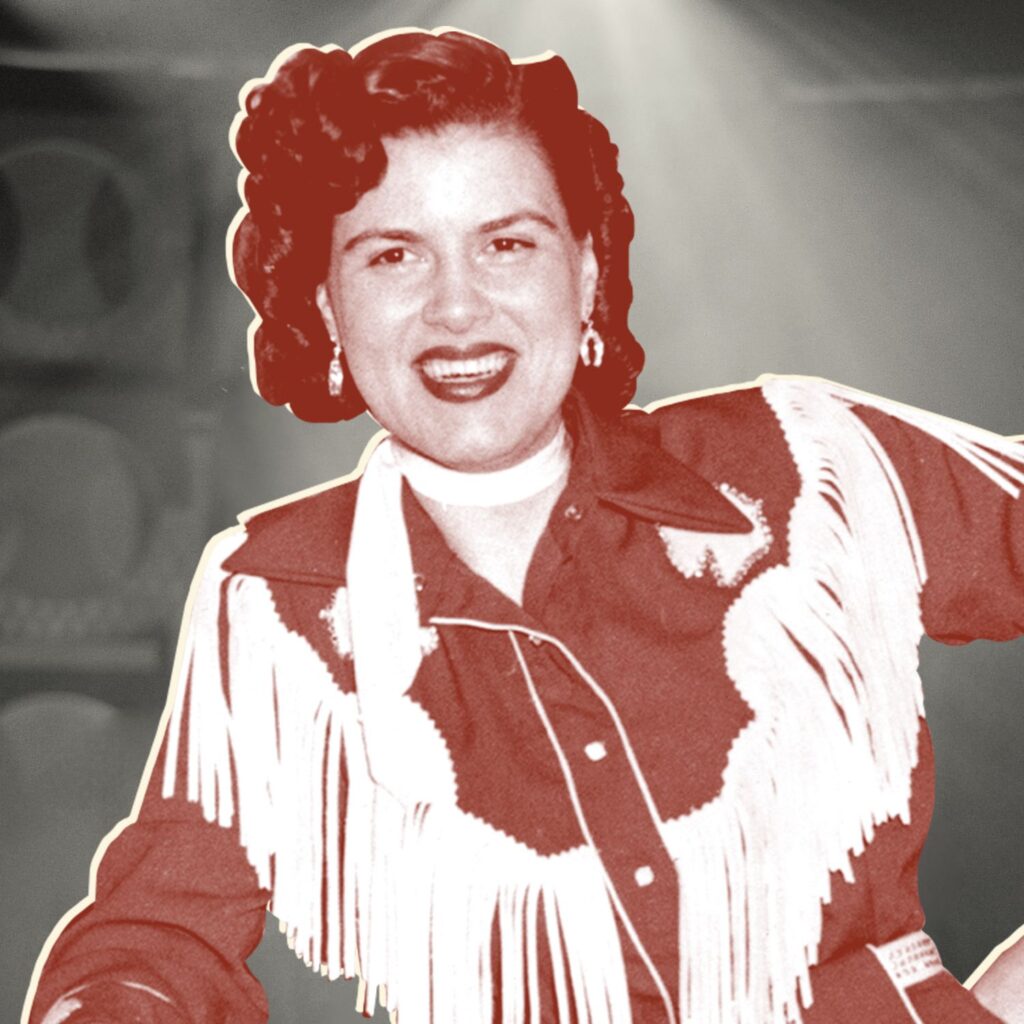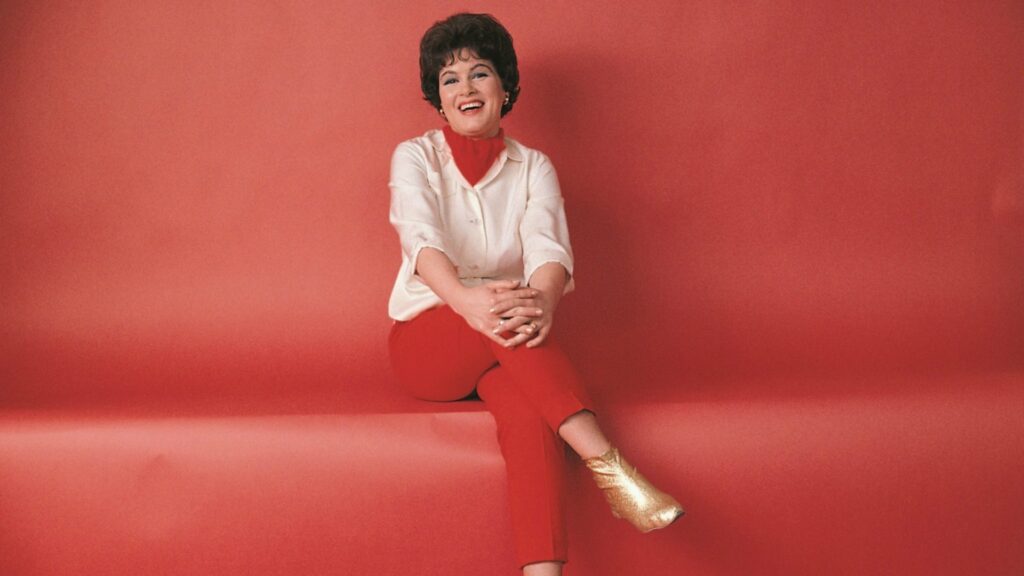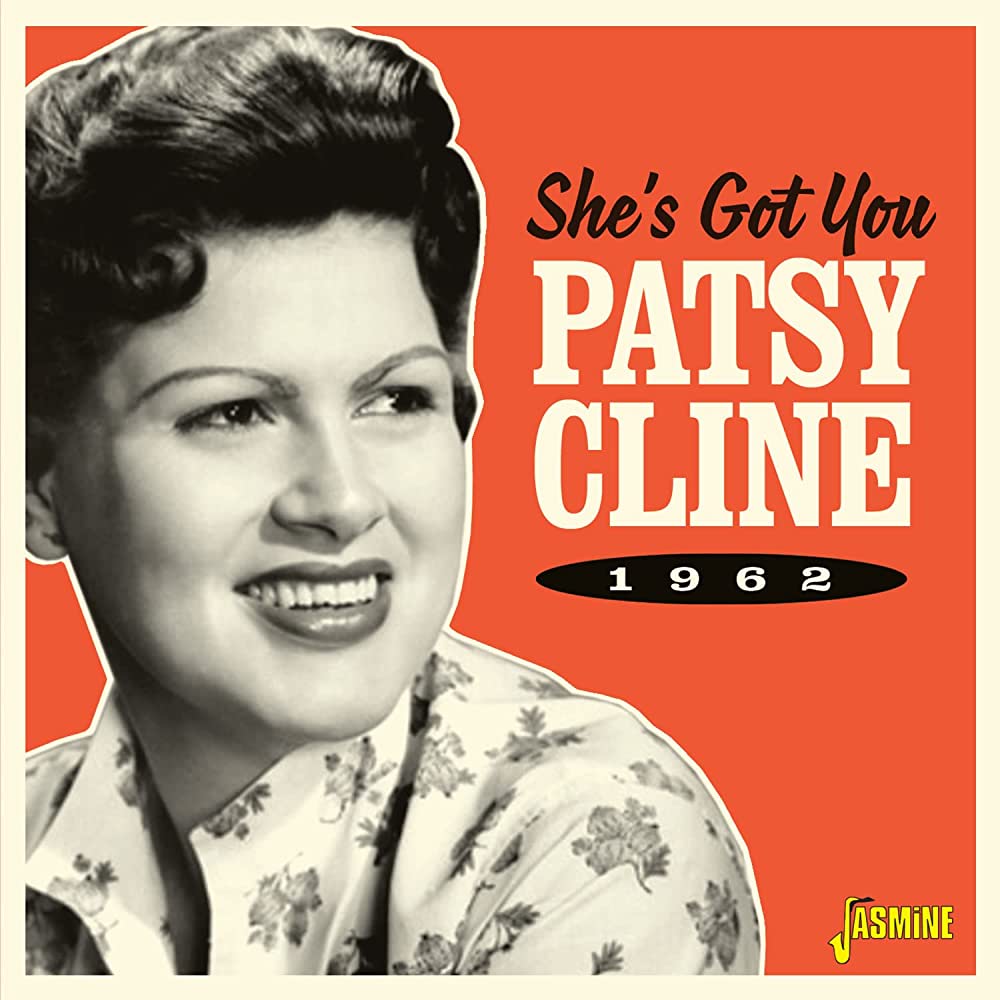Patsy Cline: Music Intertwined With Heartbreak
Written by Sorraya Gonzales on June 6, 2023
A CD from the local Barnes and Nobel help me dive into the 1960’s country star lyrics of heartache and longing for unrequited love.

Patsy Cline’s soothing country vocals accompanied by The Jordanaries’ strings brought the country sensation into stardom during the mid-1950s and early 1960s. Despite the vocals being raw and vulnerable, a different outlook of hits at the time, Cline’s ability to demonstrate heartbreak remains a timeless signature. The ability to maintain such composure through raw lyrics of longing would drive fans, including me, to adore her record for many generations.
In a CD I found on discount at Barnes and Noble, I relived the feeling of heartbreak through each track provided. Although it was a random assortment of Cline’s successful hits, the record still demonstrated the talent of music during that time and the female perspective on a broken heart. In a narrative of 12 songs, the CD brings the journey of the different stages of a breakup, including denial, bargaining, anger, acceptance, and recovery.
Stage One: Denial
The first track on the disc, titled, “Walkin’ After the Midnight,” encapsulates the denial of a broken heart. The country blues track tells how Cline figuratively searches for her love to return. At the start of the track, Cline Sings,
I go out walkin’ after midnight
“Walkin After Midnight” by Patsy Cline
Out in the moonlight
Just like we used to do
I’m always walkin’ after midnight
Searchin’ for you

Despite the relationship ending, Cline’s repetition of walking and searching for her love displays the denial of a broken relationship since Cline still assures their lover’s return. Echoing the start of a breakup, the first track of the CD reflects the denial of a lost love.
Stage Two: Bargaining
While the denial stage is not as present in the CD, many tracks deal with trying to bargain one’s way back into a relationship. When someone enters the bargaining stage of grief, they try to negotiate in any way to return to their love. The three songs that highlight this stage are “She’s Got You,” “Why Can’t He Be You,” and “When I Get Thru With You (You’ll Love Me Too).” All three songs have clear titles, yet different ways of trying to wiggle back into her lover’s arms, emphasized in the song “Back in Baby’s Arms.”
In the record “She’s Got You,” Cline addresses how she keeps all the sentimental items instead of letting go of the unrequited love; the song reads.
I’ve got the records that we used to share
“She Got You” by Patsy Cline
And they still sound the same as when you were here
The only thing different
The only thing new
I’ve got the records, she’s got you

Her longing and wishes embody through keeping small sentimental items. Symbolize how Cline refuses to let go and physically keeps their items in hopes of their return.
In “Why Can’t He Be You,” Cline describes how she has entered a new relationship but still longs for her past lover. The track depicts Cline’s dissatisfaction with her current lover and how she wants to return to their past relationship. The intense yearning for her past relationship manifests in the track “When I Get Thru With You (You’ll Love Me Too).” The song assures the audience that she will win her lover back through affection and make him forget about the new woman in his life.
Although the circumstances are emotionally damaging, anyone with a broken heart can relate to Cline’s way of bargaining a person’s love.
Stage Three: Depression and Anger
Cline experiences both depression and anger in most of her songs. While the instrumentals emulate the grief of a breakup, the lyrics sung by Cline exemplify the frustration of trying to get over someone. Unlike other rock and blues vinyl’s with aggressive lyrics, Cline’s anger manifests into annoyance with being unable to move on. For instance, her most famous record, with over 100 million streams on Spotify, titled “Crazy,” perfectly emulates the depression and frustration a broken heart brings. The lyrics of
I’m crazy for trying
“Crazy” by Patsy Cline
And crazy for crying
And I’m crazy for loving you
Relate to many people who long for their unrequited love to return.
As well as correlates to the frustration of falling for someone who does not feel the same way.
Not only do her songs establish bitterness, but also perfectly depict intense sorrow. In tracks such as “I Fall to Pieces,” “Heartaches,” and “Sweet Dreams (Of You),” Cline clarifies her pain with losing love as well as her longing for a fresh start.
I should be happy with someone new
“Heartaches” by Patsy Cline
But my heart aches for you (my heart aches for you)
You tell me to find someone else to love
“I Fall to Pieces by Patsy Cline
Someone who’ll love me too
Why can’t I forget you and start my life anew?
“Sweet Dreams (Of You)” by Patsy Cline
Instead of having sweet dreams about you
The constant repetition of wanting to find a new lover reflects the agony of being unable to move on, which displays in the song “Faded Love,” a reflective track on missing a past relationship.
Stage Four: Acceptance and Recovery
Despite the depressive states in most songs, two tracks exemplify the recovery stage of a breakup. In the song “Leavin on Your Mind,” Cline accepts that their current lover has lost feelings. They address how the relationship needs to end so that Cline may let go of false hope. The song reads:
If you got leavin’ on your mind
“Leaving on Your Mind” by Patsy Cline
Tell me now, get it over
Hurt me now; get it over
While Cline depicts how she needs to move on in “Leavin on Your Mind,” she details how she still loves her ex in the track “Always.” In the song, Cline finally accepts her remaining feelings despite the longing and pain the person caused. Even if their partner has found someone else, the love Cline has for them will not change. Further driving the message of the absurdity of love, a relatable feeling that multiple generations get to hear through her music.





